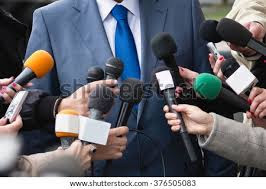Journalists, even when partisan in the name of freedom of speech, still like to say they are after the truth.
That may well be honest in terms of how they see truth and in the eyes of their prime listeners and readers. But is it how their work comes across to an audience requiring unbiased information on current events? If it isn’t, is it a job done honestly? - assuming some superior ‘objective approach’ is open to them.
Interview after interview shows most politicians, legally and professionally counselled beforehand, are able to evade journalists' questions and stifle useful discussion by robotically repeating the party line. Digress and deny, concede nothing.
In the same way, mixed panels on popular political ‘shows’, got up to present a ‘balance’ of opinion, all too often end in a futile shouting match between panelists whose one shared aim is to prevent opposition views being heard.
We appreciate this is election year in key western democracies and that no one said democracy, or life, is fair. If we want democracy, we must accept all its ways and means, not just the ones we agree with.
But if there is such a thing as 'the truth', can politicians somehow be held to it? Let us speculate.
What if journalists were always to interview politicians constructively, giving them time to put their position while pointing as now to any gaps and contradictions along the way. Then suppose they ask the same simple question politely every time - it could even become this method's catch-phrase:
“Do you really believe what you’re saying?”
Even politicians could not talk round that question. And wouldn’t their answer 'tell' all listeners, those agreeing and not agreeing with what they just heard, everything they want or need to know about the truth: namely, whether the speaker is telling it?
Alas, we live in the real world. The truth, like politicians, is elusive and the media is doing what they can in the circumstances. Indeed, they would no doubt quickly run out of willing interviewees if they did anything more.
We have the pageant journalistic jousting we have and had better think for ourselves.










.jpg)








